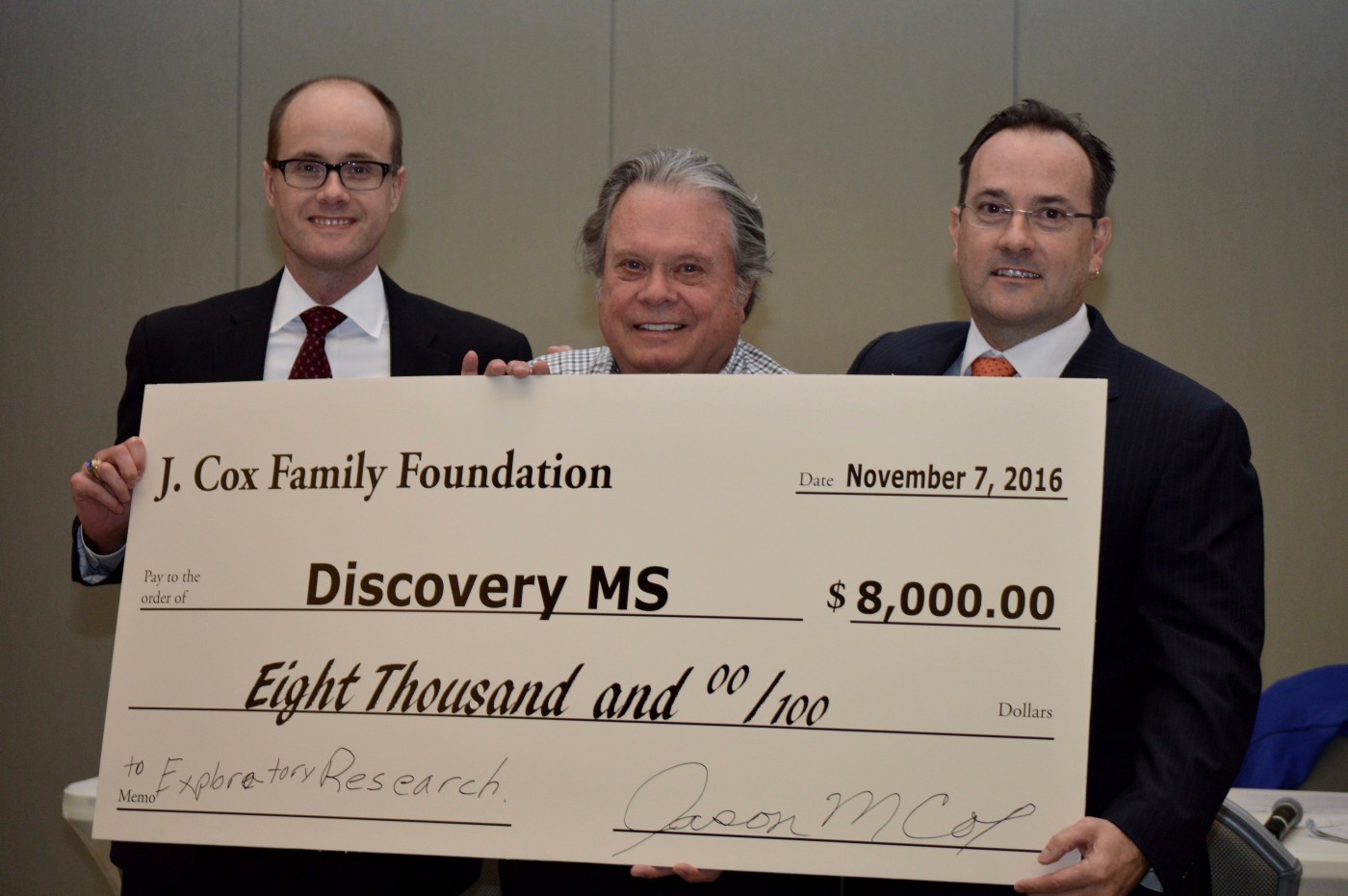Discovery MS Launches in North Carolina with Series of Research Efforts
Written by |

Jason Cox, Herman Stone, and Simon Gregory display the latest contribution to Discovery MS. Photo credit: NC Research Campus
Discovery MS, a nonprofit research initiative based at the David H. Murdock Research Institute (DHMRI) in North Carolina, had its official launch recently, and announced a series of research projects into multiple sclerosis (MS).
The initiative uses private funding to advance research aiming to develop new prognostic and diagnostic tools for MS.

Jason Cox, Herman Stone, and Simon Gregory accepting the donation to Discovery MS. (Credit: Discovery MS)
At its opening event on Nov. 7, Jason Cox, an MS patient for 22 years, presented an $8,000 donation from the J. Cox Family Foundation to Simon Gregory, PhD, principal investigator at Discovery MS and a professor of neurology at Duke University.
“We support the work of Discovery MS because it is exploratory research,” Jason Cox said in a press release. “They are looking for the next avenue to cure, diagnose and prevent this disease. We support Simon’s work and are going to reach out to a lot of other foundations.”
Gregory’s work as the director of the DHMRI’s Genomics Lab served as the basis for Discovery MS, as did his direct link with three MS sub-studies of the MURDOCK study taking place at Duke University.
MURDOCK is a longitudinal clinical investigation collecting biospecimens and health information from over 12,000 participants, covering various diseases, that began in 2007. Many of Discovery MS studies underway are using biospecimens donated by 976 people who took part in the MURDOCK MS Study.
“By having a collection of biospecimens generously donated by people with MS as part of the MURDOCK-MS study, we can take a multi-dimensional approach. We don’t have to limit ourselves to just looking at the genetics or the function of gene expression. We can do that in combination with metabolomics, proteomics and clinical data to enhance discovery and approach a cure,” Gregory said.
Current work being led by Gregory, in collaboration with researchers from North Carolina to Australia, includes:
- Developing a model to distinguish between responders and non-responders for beta-interferon — a first-line treatment to slow disease progression in MS
- Developing biomarker signatures to predict the development of MS
- Leading gene expression studies in longitudinal samples of patients with PPMS to determine biomarkers and mechanisms of disease progression
- Developing therapies that moderate immune cell expression, treat inflammation and promote remyelination
- Developing a mobile app that can track symptoms and identify signatures of disease progression to aid healthcare providers
“Simon continues to exceed my expectations,” said Herman Stone, a businessman who provided the initial funding for Discovery MS.
Stone and Cox share a goal of raising $1 million every year for the next five years to support Discovery MS and the research Gregory is leading.
“The exciting work that he is doing plus his commitment to all of the folks who have MS makes this one of the most important projects in the country,” Stone added.
The Murdock Institute is part of the NC Research Campus, a public-private venture.





